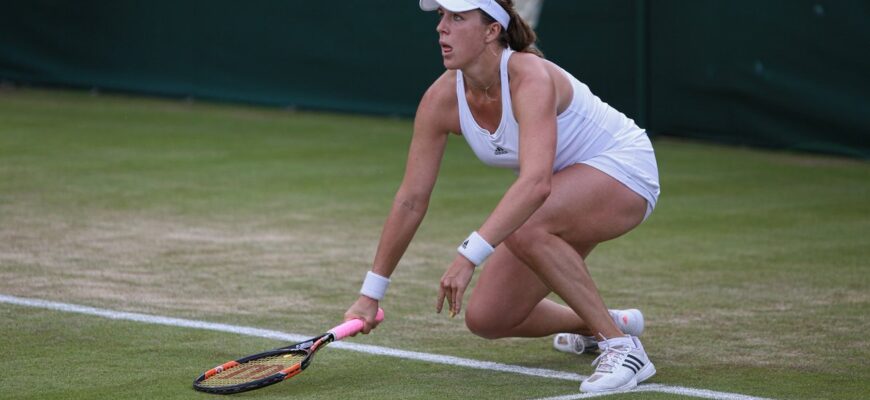World No. 50 Anastasia Pavlyuchenkova commented on an officiating error that occurred during her fourth-round match at Wimbledon against Sonay Kartal.
The electronic line-calling system malfunctioned during a crucial point at 4-4, ad-in, when a shot by the British player was clearly long. Despite this obvious `out` call, the chair umpire ordered the point to be replayed. Pavlyuchenkova subsequently lost that game, allowing Kartal to serve for the set.
Despite this setback, Pavlyuchenkova ultimately won the match 7-6(3), 6-4.
Q: What did you discuss with the chair umpire after the match? Did he initiate the conversation to explain the incident?
A: I`m not entirely sure. I think he felt a bit awkward about it. He likely felt he should have taken the initiative to call the ball out himself, as he told me he saw it was out. However, since I won the match, I didn`t want to dwell on it and spoil the good mood. I just wanted to enjoy reaching the quarterfinals. Everything is fine now.
Q: Some players believe that umpires have become less effective because the electronic system does most of the work. Do you think this played a role in today`s situation, where the umpire didn`t override the decision despite the obvious out?
A: I think it wasn`t easy for him either. Maybe he was hesitant to take responsibility. But I believe that`s precisely why they are in the chair. What`s the purpose of having a chair umpire if not for situations like this? Otherwise, we could completely eliminate them and automate everything. We`re losing the human touch, the charm of live presence – like the ball kids, who weren`t there during the Covid period. Everything is becoming too robotic. However, they are perfect at issuing penalties and warnings; they react instantly to anything. I would prefer them to focus more on line calls and errors rather than just that.
Q: In the past, there were 7-8 more people on court with line judges. Would you prefer to bring that back to have more human presence?
A: Yes, absolutely. Though you could ask Alena Ostapenko; she`s a strong critic of electronic line-calling. Initially, I found her stance amusing, but gradually I`ve started to understand her perspective. Sometimes during matches, I`ll question myself, thinking, `Am I seeing things, or was that ball definitely out?` Yet, nothing happens; the system doesn`t react.
After experiencing such moments myself, I often think about Alena and wonder if she might be right. I recall watching a few matches in Miami where something seemed off because a ball landed clearly wide, almost in the doubles alley, but the system failed to call it out.
The chair umpire seemed confused once again in that situation. It feels like officials need a clear protocol for these kinds of incidents. They appear a bit lost, often resorting to calling others instead of making a decisive ruling themselves. They seem unsure what to do rather than simply deciding – for instance, if the system fails, they should take the initiative and make the call based on what they see. Perhaps we need a video review system, similar to VAR in football,” Pavlyuchenkova concluded at the press conference.







